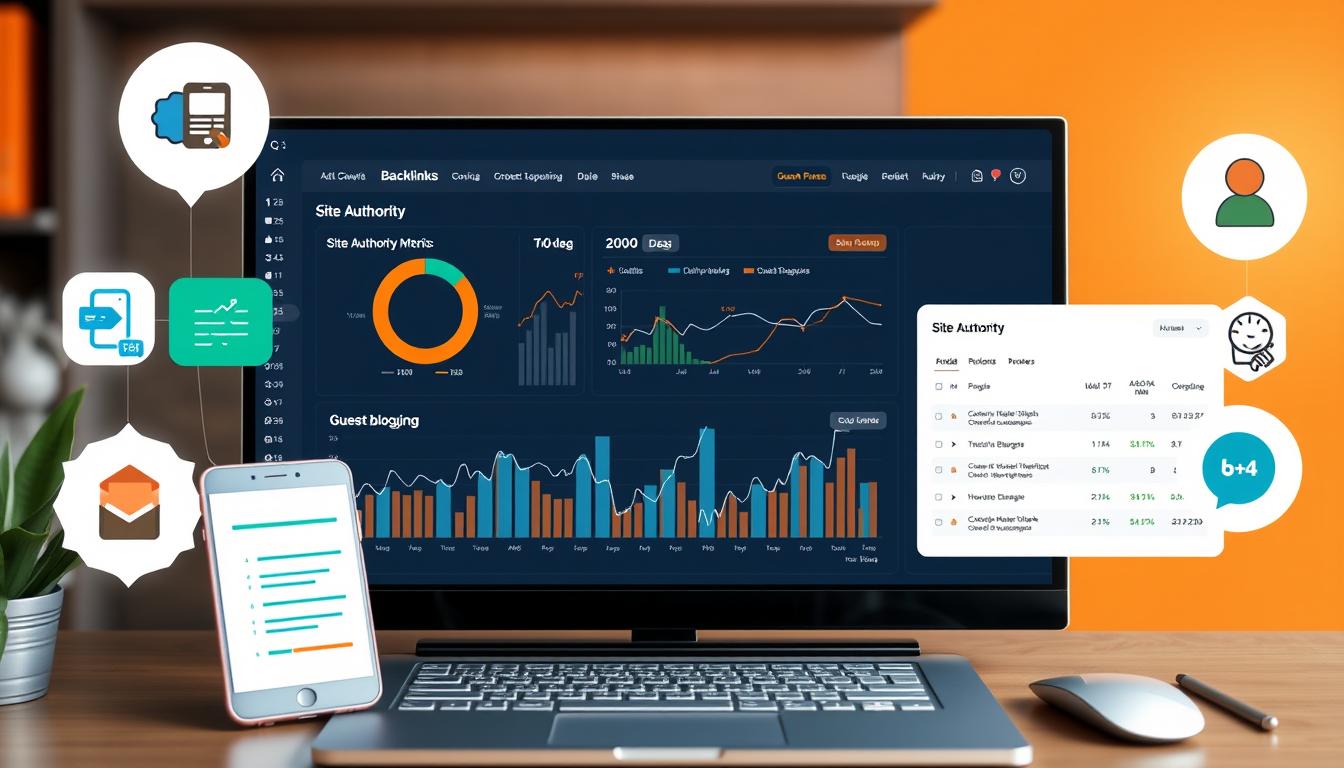The Dos and Don’ts of Local SEO for Small Businesses

As a small business owner, you know how important it is to have a strong online presence. With more and more consumers turning to the internet to find local businesses, it’s crucial to optimize your website for local search engine optimization (SEO).
Local SEO for small businesses can help you attract more customers in your community and improve your visibility in search engine results pages (SERPs). By following the dos and avoiding the don’ts of local SEO, you can drive targeted traffic to your website and increase your chances of converting visitors into customers.
Key Takeaways:
- Local SEO is crucial for small businesses looking to attract more customers in their community.
- Following the dos and avoiding the don’ts can help you optimize your website for local search.
- Effective keyword research, on-page optimization, and high-quality content are essential for local SEO success.
- Building and managing local citations, getting online reviews, and optimizing for voice search are all important for improving local search rankings.
- Staying up-to-date with local SEO trends and monitoring your performance can help you stay ahead of the competition.
Importance of Local SEO for Small Businesses
As a small business owner, you are likely aware of the importance of digital marketing. However, local search optimization is a crucial component that cannot be overlooked. Local SEO is the process of optimizing your website and online presence to rank higher in local search engine results pages (SERPs) and attract more local customers.
Local SEO can help your small business thrive in the digital landscape by:
- Increasing your visibility in local search results
- Attracting more targeted traffic to your website
- Establishing your business as a trustworthy and authoritative source in your local market
- Boosting your online reputation and customer reviews
With small business digital marketing being so competitive, it’s essential to have a local search optimization strategy in place to stay ahead of the game. By understanding the importance of local SEO and implementing local SEO strategies, you can achieve success in your local market and drive more targeted traffic to your website.
Conducting Keyword Research for Local SEO
If you want to improve your local search rankings, you need to conduct effective keyword research for local SEO. Here are some best practices, tools, and techniques to help you find the right keywords that will drive targeted traffic to your website:
- Start with broad, general keywords that are relevant to your business and location.
- Use keyword research tools like Google Keyword Planner, SEMrush, and Ahrefs to find related keywords and gauge their search volume and competition.
- Look at your competitors’ websites and see what keywords they are targeting.
- Use long-tail keywords that are more specific and have less competition.
- Include location keywords in your keyword strategy to target local customers.
Best Practices for Local Keyword Research
When conducting keyword research for local SEO, keep these best practices in mind:
- Focus on relevance – choose keywords that are relevant to your business and location.
- Consider search volume and competition – choose keywords with a good balance of search volume and competition level.
- Use long-tail keywords – these are more specific and less competitive, making it easier to rank for them.
- Include location keywords – add the name of your city, county, or region to your keywords to target local customers.
Tools for Local Keyword Research
Here are some tools you can use to conduct keyword research for local SEO:
| Tool | Description |
|---|---|
| Google Keyword Planner | A free tool from Google that provides keyword ideas and search volume data |
| SEMrush | A paid tool that provides keyword ideas, search volume data, and competitor analysis |
| Ahrefs | A paid tool that provides keyword ideas, search volume data, and backlink analysis |
With these tips and tools, you can conduct effective keyword research for local SEO and improve your local search rankings. Remember to focus on relevance, search volume, and competition, and use long-tail and location keywords to target your local audience.
Optimizing On-Page Elements for Local SEO
Optimizing on-page elements is crucial for local SEO success. Meta tags, URL structure, and content optimization are some of the key on-page elements you should optimize to improve your website’s visibility in local search results.
Meta tags provide information about your web page to search engines. The meta title and meta description should include relevant keywords and provide a clear, concise description of the page’s content. Use the title and meta tags to optimize your page’s meta description for local SEO.
URL structure
Inclusion of the location in the URL can help search engines understand the local relevance of your page. Use a consistent and descriptive URL structure, like domain.com/city/business-name, and avoid using numbers and special characters in your URL. This simple tactic can help you rank higher in local search results.
Content optimization
Content optimization plays a vital role in local SEO. Use local keywords and location-specific terms throughout your content. Ensure that the content is fresh, unique, and informative. Utilize header tags (H1, H2, H3) to break up content into easily digestible sections.
Image optimization
Images can improve user engagement and make your page visually appealing, but they can also slow down your site if not optimized for local SEO. Use descriptive filenames and alt tags that include relevant keywords and location modifiers. Compress images to ensure faster page load times.
Internal linking
Internal linking can boost your website’s credibility and relevance, making it easier for search engines to understand the structure of your website. Link to other relevant pages within your website, including location-specific pages. Include anchor text with relevant keywords and location modifiers.
Schema markup
Schema markup helps search engines understand the context of your website’s content so that they can provide more relevant search results. Add schema markup for local businesses by including relevant information such as your business name, address, phone number, and hours of operation.
Creating High-Quality Local Content
When it comes to local SEO, creating high-quality and engaging content is essential. Not only does it help improve your website’s visibility in local search results, but it also helps you establish authority in your local market.
Here are some effective local SEO strategies to create high-quality content:
1. Research your target audience
Before you start creating content, it’s essential to research your target audience and understand what they’re interested in, what they’re searching for online, and what their pain points are.
2. Focus on local topics
Create content that is specific to your local area. Highlight events happening in your town or city, or write about local news. This type of content can help you rank higher in local search results.
3. Use local keywords
Include local keywords in your content, such as your city or town name, nearby landmarks, or popular local phrases. This helps search engines understand that your content is relevant to a specific location.
4. Write long-form content
Long-form content (over 1,000 words) tends to perform better in search engines. It allows you to provide more in-depth information and demonstrate your expertise in a particular area.
5. Use multimedia
Including images, videos, and interactive content in your posts can help increase engagement and make your content more shareable on social media platforms.
| Pros | Cons |
|---|---|
| Improves local search rankings | Can take significant time and effort to create quality content |
| Attracts targeted traffic to your website | Requires ongoing commitment to creating new content to maintain your ranking position |
| Establishes authority in your local market | May not see immediate results |
In summary, creating high-quality and engaging local content is a crucial element of any successful local SEO strategy. By researching your target audience, focusing on local topics, using local keywords, writing long-form content, and including multimedia, you can improve your website’s visibility and attract more targeted traffic to your site.
Building and Managing Local Citations
Local citations are one of the most significant factors in local SEO. These are online mentions of your business name, address, phone number, and website (NAP+W) that help search engines like Google verify and validate your business information.
Building and managing your local citations effectively is vital for enhancing your online presence and boosting your visibility in local search results. You should aim to create a consistent NAP+W across all directories, review sites, and other platforms.
When building local citations, there are several factors to consider. You should first prioritize your business’s most important listings, such as Google My Business, Yelp, and Facebook. These are platforms where most customers search for businesses, and having accurate and complete information can significantly enhance your local search rankings.
In addition, you should ensure that your business information is the same across all channels consistently. Inaccurate or inconsistent information can negatively affect your online reputation and lead to missed opportunities for attracting new customers.
It’s also essential to monitor and manage your local citations regularly. Check for accuracy and update any missing or outdated information promptly. You can also use tools like Moz Local, Yext, or BrightLocal to automate the citation building process and manage your listings efficiently.
Getting Online Reviews and Ratings
One of the most critical factors in local search optimization is collecting positive online reviews and ratings. These reviews and ratings play a significant role in influencing prospective customers’ purchasing decisions and improving your local search ranking.
Start by encouraging your customers to leave feedback on Google My Business, Yelp, and other relevant review websites. Make it easy for customers by providing links to these review sites on your website, social media pages, and email newsletters.
Note: It’s essential to respond to both positive and negative reviews promptly. Address any concerns or complaints raised in negative reviews professionally and politely, showing that you care about your customers’ feedback.
Managing Your Reputation
Managing your online reputation is crucial to your local search success. Regularly monitor your business’s online presence on various channels, including social media and review sites. Responding to customers quickly and professionally can help you enhance your online reputation.
Additionally, by addressing negative feedback adequately, you can turn dissatisfied customers into brand advocates. This can lead to a significant improvement in your brand’s image and attract more local customers.
Optimizing for Voice Search
With voice search on the rise, implementing local SEO strategies that optimize for voice search can be a game-changer for your small business. By using natural language and long-tail keywords that people are more likely to use in voice search queries, you can improve the visibility and ranking of your website in local search results.
When optimizing for voice search, it’s important to focus on the intent behind the search query. Think about the questions that your potential customers might ask and provide informative answers in your content. Use schema markup to make it easier for search engines to understand the content on your website, and optimize your website and content for mobile devices to enhance the user experience.
Remember that optimizing for voice search is not just about improving your ranking, It’s about providing a good user experience that will help people find the information they need and ultimately drive more traffic to your website. By incorporating these local SEO tips, you can stay ahead of the competition and attract more local customers to your small business.
Mobile-Friendly Optimization for Local SEO
Since mobile usage continues to rise, it’s essential to optimize your website for mobile devices to improve local search rankings and attract more traffic to your site. Ensuring that your website is mobile-friendly provides a seamless user experience and can help improve your chances of ranking higher on local search results.
Why Mobile Optimization Matters
With the rapid growth of mobile devices, including smartphones and tablets, people are using their devices to search and access information more than ever before. According to recent studies, mobile devices accounted for 57% of all online traffic in 2020. Therefore, failing to optimize your website for mobile devices could negatively impact your local search rankings and drive potential customers away.
How to Optimize Your Website for Mobile Devices
To make your website mobile-friendly, you need to ensure that it loads quickly, is easy to navigate and displays correctly on mobile devices. Here are a few tips for optimizing your website for mobile devices:
- Use a responsive design that automatically adjusts to fit any screen size or device
- Minimize the use of large images and videos that can slow down your website
- Ensure your font size and style are easily readable on smaller screens
- Use clear and concise headlines to communicate your message effectively
- Avoid pop-ups that can frustrate mobile users
The Benefits of Mobile-Friendly Optimization for Local SEO
Optimizing your website for mobile devices can significantly improve your local search rankings and attract more traffic to your site. According to recent studies, 61% of mobile users are more likely to contact a local business with a mobile-friendly site. Additionally, Google favors mobile-friendly sites and may penalize sites that are not optimized for mobile devices.
Leveraging Social Media for Local SEO
Social media platforms like Facebook, Instagram, and Twitter can significantly improve your local online presence, helping you connect with your local audience. Here are some local SEO strategies to leverage social media for your small business:
Create and Optimize Your Social Media Profiles
Create a business page on social media platforms that your target audience uses. Ensure that the page’s name and description contain relevant keywords related to your business. Fill out all the necessary information and make sure that your contact details, website link, and store-opening hours are up-to-date.
Promote Your Business Using Social Media
Post high-quality content, such as photos, videos, blogs, and infographics, that are local, engaging, and informative. Use relevant hashtags to increase your visibility and reach. Also, run social media ads and promotions to target your local audience.
Engage with Your Followers on Social Media
Interact with your followers by responding to their comments, messages, and reviews. Showcasing good customer service on social media not only improves your reputation but also boosts your local SEO.
Overall, social media is a great platform to improve your local online presence and connect with your local community. Apply these local SEO tips accordingly, to take full advantage of social media’s potential for your small business.
Utilizing Local Business Directories
Local business directories like Google My Business, Yelp, and Bing Places can significantly boost your local SEO efforts by helping potential customers find your business online. By listing your business on these directories, you increase your chances of showing up in local search results and attract more customers in your area.
How to Utilize Local Business Directories
When creating your listings on local business directories, ensure that you provide accurate and consistent information across all directories to avoid confusion or penalties from search engines. Some important pieces of information to include are your business name, phone number, address, and website. You can also add photos, videos, and descriptions to make your listing more attractive to potential customers.
In addition to creating listings, you can also take advantage of other features provided by local business directories, such as the ability to add business posts, manage reviews, and track customer engagement. These features can help you create a strong online presence and connect with potential customers in your local market.
The Benefits of Utilizing Local Business Directories
Listing your business on popular directories can help you:
- Increase your visibility in local search results
- Improve your local online presence
- Attract more customers in your area
- Establish credibility and trust with potential customers
Overall, utilizing local business directories is a simple yet effective way to enhance your local search engine optimization and drive growth for your small business.
Monitoring and Analyzing Local SEO Performance
As a small business owner investing in local SEO strategies, monitoring and analyzing your performance is crucial to understanding how effective your efforts have been. Tracking key metrics allows you to identify what is working and what needs improvement, helping you refine and optimize your approach for better results.
When monitoring your performance, you should be paying attention to metrics such as:
| Metric | Description |
|---|---|
| Website traffic | How many people are visiting your website through local search results? |
| Click-through rate (CTR) | What percentage of people are clicking through to your website from search results? |
| Conversion rate | How many website visitors are completing a desired action, such as making a purchase or filling out a contact form? |
| Local search rankings | Where does your business rank in local search results for your targeted keywords? |
| Online reviews and ratings | What is your overall rating and how many positive reviews do you have? |
Using analytics tools such as Google Analytics and Google Search Console can help you track these metrics and gain valuable insights into your local SEO performance. By continuously monitoring and analyzing your performance, you can identify areas for improvement and make data-driven decisions to optimize your local SEO strategies for greater success.
Local Link Building Strategies
Link building is an important aspect of local SEO. Building high-quality, local backlinks can significantly improve your website’s visibility in local search results. Here are some effective local link building strategies to consider:
1. Leverage Local Business Partnerships
Partnering with other local businesses in your community can be an excellent way to generate backlinks to your website. You can collaborate with other businesses on joint marketing campaigns, sponsor local events, or participate in community outreach programs to earn backlinks from their websites.
2. Create Local Resource Pages
Creating local resource pages is another effective strategy for local link building. These pages can provide valuable information to your audience while also linking out to other relevant resources and local businesses in your community. By doing so, you can earn backlinks from other websites that find your resource pages informative and useful.
3. Guest Blogging
Guest blogging is another strategy that can help you generate quality backlinks to your website. Look for local blogs or websites that accept guest posts and contribute articles that are relevant to your industry. By including a link back to your website in your guest post, you can earn valuable backlinks that improve your local search rankings.
4. Engage in Local Online Communities
Engaging with other local businesses and community members in online communities and forums can help you generate backlinks to your website. By sharing your expertise and providing valuable insights to others in your community, you can build relationships and earn backlinks from other websites that value your contributions.
By implementing these local link building strategies, you can earn high-quality backlinks that boost your local online presence and improve your visibility in local search results.
Staying Up-to-Date with Local SEO Trends
As a small business owner, it’s crucial to keep up with the latest local SEO trends to stay ahead of the competition. By staying up-to-date with algorithm changes, updates, and industry trends, you can adapt your local SEO strategies and achieve success in your local market. Here are some tips to help you stay ahead:
Follow Leading SEO Blogs and Publications
One of the easiest ways to stay up-to-date with local SEO trends is by following leading SEO blogs and publications. Subscribe to their newsletters, join their social media channels, and set up alerts to receive updates on new trends, algorithm changes, and best practices.
Attend SEO Conferences and Workshops
Attending SEO conferences and workshops is a great way to network with other professionals and learn about the latest local SEO trends. You’ll have the opportunity to attend talks, participate in workshops, and stay up-to-date with the latest industry news and developments.
Join Online SEO Communities
Joining online SEO communities and forums can be a great way to connect with other professionals and discuss local SEO trends. You’ll have the opportunity to ask questions, share knowledge and resources, and stay up-to-date with developments in the industry.
Use Analytics and Tracking Tools
Finally, using analytics and tracking tools is crucial to staying up-to-date with local SEO trends and changes. Tools like Google Analytics, Google Search Console, and SEMRush can help you track metrics, analyze data, and keep tabs on your website’s performance, allowing you to make data-driven decisions and stay ahead of the curve.
Conclusion
As a small business owner, optimizing your local SEO is crucial for attracting more customers and increasing your online visibility in your community. By following the dos and avoiding the don’ts, you can improve your website’s local search optimization and achieve success in your local market.
Remember to conduct thorough keyword research, optimize your on-page elements, create high-quality local content, build and manage local citations, and encourage positive online reviews and ratings. Additionally, make sure your website is mobile-friendly, utilize social media platforms, and leverage the power of local business directories.
Monitoring and analyzing your local SEO performance can help you understand what’s working and what needs improvement. And don’t forget about local link building strategies and staying up-to-date with the latest local SEO trends.
In summary, with the right local SEO strategies in place, small businesses can increase their online presence and attract more local customers. So, let’s get started on optimizing your website for local search and improving your small business SEO today!
Keywords: Local SEO for Small Businesses, local search engine optimization, small business SEO
FAQ
How can local SEO benefit small businesses?
Local SEO can benefit small businesses by improving their local online presence and visibility in local search results. It helps attract more targeted customers from the local community and increases the chances of converting them into paying customers.
What is the importance of local search optimization?
Local search optimization is crucial for small businesses as it allows them to target customers in their specific geographic area. By optimizing their website for local search, small businesses can increase their chances of being found by local customers who are actively searching for their products or services.
How can I conduct effective keyword research for local SEO?
To conduct effective keyword research for local SEO, you can use tools like Google Keyword Planner, Google Trends, and other keyword research tools. Focus on keywords that are relevant to your business and have a local intent. Also, consider long-tail keywords that include location-specific terms.
What on-page elements should I optimize for local SEO?
To optimize your website for local SEO, you should focus on optimizing on-page elements such as meta tags (title tags and meta descriptions), headings, URL structure, and image alt tags. Incorporating location-specific keywords into these elements can help improve your visibility in local search results.
How can I create high-quality local content?
Creating high-quality local content involves understanding your target audience and their needs. You can create content that provides useful information about your products or services in relation to the local community. Include location-specific keywords in your content and ensure it is engaging, informative, and well-written.
What are local citations and how can I build and manage them?
Local citations are mentions of your business’s name, address, and phone number (NAP) on external websites or directories. To build and manage local citations, you can list your business on popular directories like Google My Business, Yelp, Bing Places, and other industry-specific directories. Make sure your NAP information is consistent across all directories.
How can online reviews and ratings impact local search rankings?
Online reviews and ratings can have a significant impact on your local search rankings. Positive reviews can boost your credibility and authority, while negative reviews can harm your reputation. Encourage your customers to leave reviews and respond to them promptly, addressing any concerns or issues raised.
How can I optimize my website and content for voice search?
To optimize your website and content for voice search, focus on using natural language and conversational keywords. Make sure your content answers commonly asked questions or provides solutions to users’ problems. Also, optimize your website for mobile devices and provide a seamless user experience for voice search users.
Why is mobile-friendly optimization important for local SEO?
Mobile-friendly optimization is important for local SEO because a significant portion of local searches are conducted on mobile devices. Optimizing your website for mobile ensures that it loads quickly, is easy to navigate, and provides a positive user experience for mobile users, increasing the chances of attracting and retaining local customers.
To leverage social media for local SEO, create profiles on popular platforms like Facebook, Instagram, and Twitter. Regularly post engaging content related to your business and interact with your local audience. Encourage social sharing and engagement, and include relevant local keywords in your social media posts.
How can I utilize local business directories for local SEO?
Local business directories like Google My Business, Yelp, and Bing Places are powerful tools for local SEO. Claim your business listings on these directories and optimize them by adding accurate and detailed information about your business. Encourage customer reviews and respond to them to enhance your local online presence.
Why is it important to monitor and analyze local SEO performance?
Monitoring and analyzing your local SEO performance allows you to track the effectiveness of your strategies and make data-driven decisions. By tracking key metrics like website traffic, rankings, and conversions, you can identify areas for improvement and optimize your local SEO efforts accordingly.
What are some effective local link building strategies?
Effective local link building strategies include reaching out to local businesses for partnerships or collaborations, contributing guest posts or articles on local blogs or websites, and sponsoring local events or community initiatives. These strategies can help you earn high-quality backlinks and boost your local online presence.
How can I stay up-to-date with local SEO trends?
To stay up-to-date with local SEO trends, follow reputable industry blogs, subscribe to newsletters, and participate in discussions on forums or social media groups. Pay attention to updates from search engines like Google, as they often announce changes to their algorithms that could impact local search rankings.





